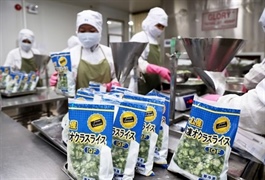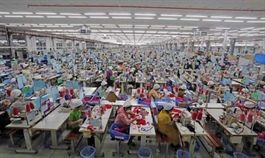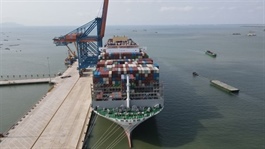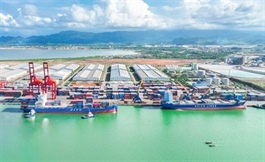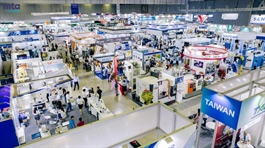New manufacturing orders surge to near-record high
New manufacturing orders surge to near-record high
The rate of expansion in the Vietnamese manufacturing sector accelerated sharply at the end of the second quarter, with new orders rising at one of the fastest rates on record, according to a survey released by S&P Global on July 1.

The S&P Global Vietnam Manufacturing Purchasing Managers' Index (PMI) rose sharply to 54.7 points in June from 50.3 points in May. Not only did this show a third consecutive monthly improvement in the sector, but it also indicated that business conditions strengthened markedly. In fact, the improvement in operating conditions was the joint-strongest since November 2018, equal to those seen in April 2021 and May 2022.
The much improved business conditions reflect substantial increases in both output and new orders at the mid-point of the year.
In particular, new orders rose to an extent only exceeded during the opening month of data collection for the survey in March 2011. An improvement in demand was reported, with some customers coming back to request additional orders during the month. In some cases, competitive pricing helped firms to secure new business. New export orders meanwhile increased at the fastest pace since February 2022.
The acceleration in growth of new orders was matched by manufacturing production, with June seeing the steepest increase in output for just over five-and-a-half years.
The rise in new orders has put pressure on operating capacity, with backlogs of work increasing for the second time in three months. Although slight, the pace of accumulation was the sharpest since January.
In some cases, firms indicated that staff shortages had led to the build-up of outstanding business. As a result, workforce numbers were raised for the first time in three months, and at a solid pace. However, some new hires were only on a temporary basis.
Andrew Harker, economics director at S&P Global Market Intelligence, said, "The Vietnamese manufacturing sector burst into life at the midway point of the year, shrugging off the relatively modest growth seen lately thanks to a rapid increase in new orders. The strength of the expansion in new work highlighted staff shortages at some firms and resulted in an accumulation of outstanding business. In response, firms took on additional staff at a solid pace."
"The growth spurt was accompanied by higher cost burdens, with increased transportation costs in particular acting to push input price inflation to a two-year-high. Rising inflation could act to dampen demand further down the line, but for now, firms will be enjoying the influx of work experienced in June," he added.







